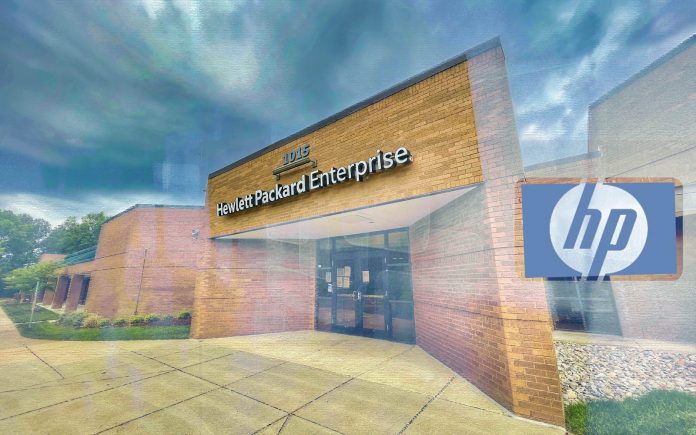A British court ruled on Friday that computer mogul Mike Lynch had orchestrated an intricate deception to inflate the worth of his business Autonomy before it was acquired for $11 billion by Hewlett-Packard in 2011.
Later on Friday, the British interior ministry ordered Lynch’s extradition to the US to face criminal charges over the transaction, which carry a possible 20-year sentence.
Lynch wants to challenge both the judge’s decision and the extradition order, according to his attorneys.
Following a nearly decade-long legal battle, Justice Robert Hildyard ruled in HP’s favor, saying the Silicon Valley company had won the majority of its civil case against Lynch, though the damages, which will be announced at a later date, will be significantly less than the $5 billion sought by Lynch.
The High Court heard a one-hour summary of a considerably lengthier judgment from Hildyard, after a nine-month trial and a two-year wait for his decision. “The claimants have essentially prevailed in their claims,” Hildyard said.
According to the court, Lynch was aware that Autonomy was engaging in dishonest business methods, that its revenue recognition was incorrect, and that its financial statements were misleading.
The court’s judgment came just before a Friday deadline for the United Kingdom to determine whether or not to extradite Lynch from the United States.
The interior ministry of the United Kingdom said that it was required to sign the extradition order if there were no reasons to prevent the order from being issued. Wire fraud and securities fraud are among the criminal accusations that may be brought against a person in the United States.
In a statement released by the Home Office, a spokeswoman stated, “On 28 January, after assessment by the courts, the extradition of Dr Michael Lynch to America was ordered.”
His attorneys said that since Lynch is a British citizen who was the CEO of an international corporation, the lawsuit should not be heard in the United States.
“Dr Lynch vehemently rejects the allegations leveled against him in the United States and will continue to battle to prove his innocence,” said Lynch’s attorney, Chris Morvillo.
“This is not the end of the struggle; in fact, it is just the beginning. Dr. Lynch will now seek an appeal with the High Court of Justice in London,” says the statement.
The most successful IT leader in the United Kingdom has suffered a precipitous fall from glory.
His groundbreaking research at Cambridge University resulted in the founding of Autonomy, which grew to become the largest software firm in the United Kingdom and a member of the blue-chip FTSE 100 index.
Academics and scientists praised him, and the government requested him to serve on the government’s technology and innovation advisory committee.
As characterized by HP, Autonomy’s “near miraculous” power was the ability to find and organize unstructured material for customers, a killer application in a future of limitless information and artificial intelligence.
A move meant to turn the computer and printer manufacturer into a more successful corporation centered on software was made possible by the purchase of the company by HP, which the judge characterized as being in the doldrums at the time.
The deal went bad nearly soon after it was completed.
HP cut down the value of Autonomy by $8.8 billion in less than a year and filed a lawsuit against Lynch and his finance director, Sushovan Hussain, for monetary damages. On February 5, 2019, Hussain was found guilty of fraud by a jury in the United States and sentenced to five years in jail.
HP, according to Lynch, had no idea what it was doing and was completely out of its depth when it came to his technology.
During the course of the case, he was on the witness stand for a total of 20 days.
Judge Hildyard delivered his decision on Friday, finding that Lynch and Hussain had fraudulently disguised a “fire sale” of hardware and engaged in intricate reselling schemes in order to hide a deficit in sales of Autonomy’s software, which was the business that HP desired the most.
Autonomy had been able to accomplish its quarterly financial targets and retain its high stock price as a result of this prior to the purchase.
“HPE is happy that the judge has held them responsible,” a spokeswoman for Hewlett-Packard Enterprise (HPE) said in a statement after the court decision in London.
Lynch was also instrumental in the formation of DarkTrace, a cyber security company that went public on the stock market last year and has a market capitalization of over $3.6 billion. Refinitiv data shows that Lynch and his wife Angela Bacares hold approximately 16 percent of DarkTrace, according to the company.
In 2016, HP sold the remaining assets of Autonomy, as well as other assets, to the British business Micro Focus.
